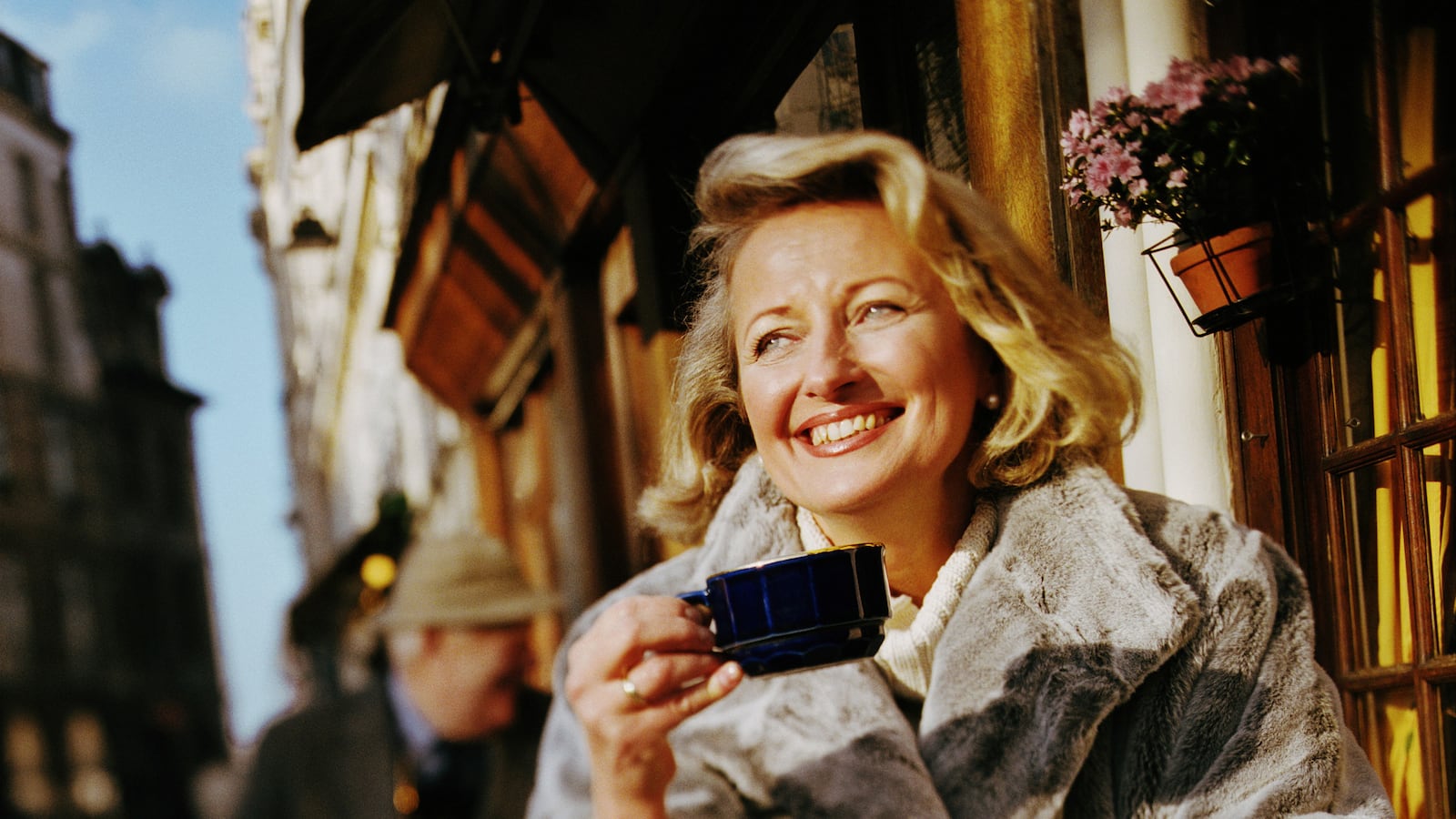
It's an age-old tale: French women don't get fat. They carry their baguettes, down their wine, and chain-smoke their cigarettes, yet they don't seem to ever put on a pound.
When I was 20, I tried emulating the French lifestyle. I lived in Paris's chic 5th arrondissement, spending my days cafe hopping between croque monsieurs and coq au vins, and my nights sucking down crepes—one sweet, one savory, of course. After only four months of living in the city of lights, there was one thing that wasn't so bright: my waistline. But I was being très Parisienne. Or so I thought. Really, the only thing I was picking up in Paris was the pounds.
When she was 18, author Mireille Guiliano came to America, land of the free samples and super-size me meals, and bam—her weight went up plus 20. It seems obvious that living in the USA is not easy on the diet, what with all of the fast food, diners, brunches, and late-night stops with out-of-control portions.
But why was I fat in France, when the French women weren’t?
In 2004, Guiliano claimed to unlock the secret, producing her hit book French Women Don't Get Fat: The Secret of Eating for Pleasure, which topped The New York Times Bestsellers list and has been dubbed "the ultimate non-diet book." What she revealed was the difference in French women's views toward food: they're not snacking, they're not obsessing over a scale, they don't fret over what's 'good' versus 'bad.'
Although science supports her theory, obesity rates in France are reportedly half of those in the U.S., Merielle subscribes to a more cultural theory to explain French women's lower weight—the idea that "life is too short to drink bad wine and to eat bad food," as she writes in the book.
And as if French women weren't already practically perfect, Mireille has done it again. Apparently, French women don't age either.
In her latest book French Women Don't Get Facelifts: The Secret of Aging with Style & Attitude (Grand Central Publishing, December 24), Mireille hones in on why French women look so damn good well into their sixties and seventies. To be sure, she doesn’t give any concrete numbers to prove that French women don’t go under the knife as often as others. Her argument is, once again, largely based on a cultural idea.
She first examines the over-arching social differences that have always existed between France and America; the misconceptions we in the United States have about aging—that life only worsens as one, god forbid, gets older.
"We call it 'Old Europe,'" Mireille said. "The idea of aging and getting old is totally different. [In America], you're old at 30. Many young people when I was working would say, 'Oh, I can't find a man and nobody looks at me. I'm already gone!' And I said, 'It's incredible, you're just starting life!' But for us French, we have a saying, 'Life starts at 50,' and we're not joking. Survey's now show that women are happiest in their sixties."
So I had to ask, now that she's actually in that stage of her life, were things really better in one's sixties? Is she really the happiest she's been in her entire life?
"I can't believe it, but when I sit down and analyze it, it makes sense," she said. "First of all, you know yourself and you have a confidence that you don't have in your twenties. [You have] knowledge and experience—you feel good and comfortable in your own skin. You know how to dress and don't care about what people think or what people say. You're just yourself."
Her words are promising, of course, to me at a ripe twenty-three years of age. "Prevention is the best revenge," she assures me. "Too late is better than never."
But just how do French women prevent the need for facelifts, while Americans are frequent plastic surgery customers?
"The French woman is very no-nonsense," she said. "Everyone gets wrinkles, it's not that important.”
It's the little things, like getting a new haircut, changing your mindset, or even taking a small vacation that can help shift what Mireille considers the secret to aging gracefully: one's attitude. In the book, she sites French icons including Catherine Deneuve, Juliette Binoche, Diana Vreeland, and Marion Cotillard, women who radiate an alluring maturity that, regardless of age, equates with beauty. And it is learning to accept that beauty—through various forms of skincare (using "all-important and under appreciated 'preventatives'" like argon oil, Vaseline, or Nivea), dieting, styling, grooming (the idea that "less is more" with a simple foundation or a touch of lipstick), exercise (walk, walk, walk), friendships, relationships, and more that seemingly eliminate the need for, well, a facelift.
"I don't know what a fly thinks—if it thinks at all—when it sees itself in the mirror," Mireille writes. "But I know if we are going to manage our aging, when we grow older and look in the mirror we need to see ourselves as we truly are on the inside and the outside. A lot of us are kidding ourselves. We are not seeing the now us. We often are seeing who we were. Or we are blinded by who we want to be or who we think we are."
Learning to accept what we actually are—that's truly aging with attitude. Carpe diem.






